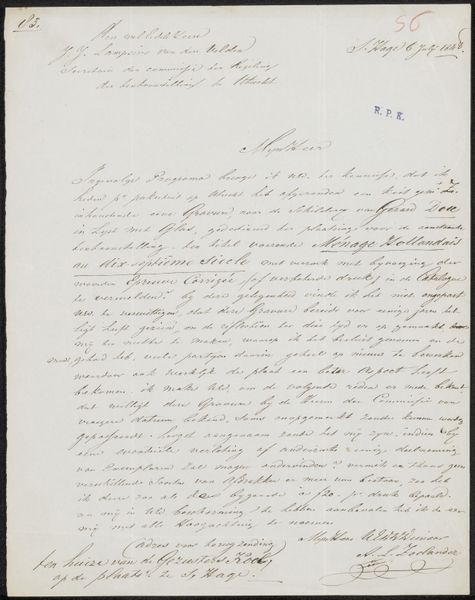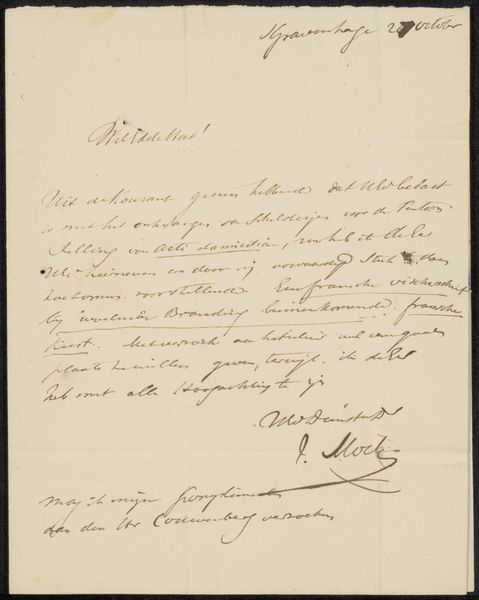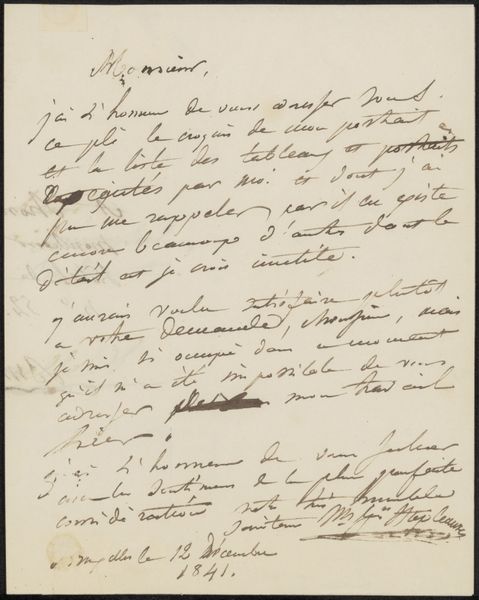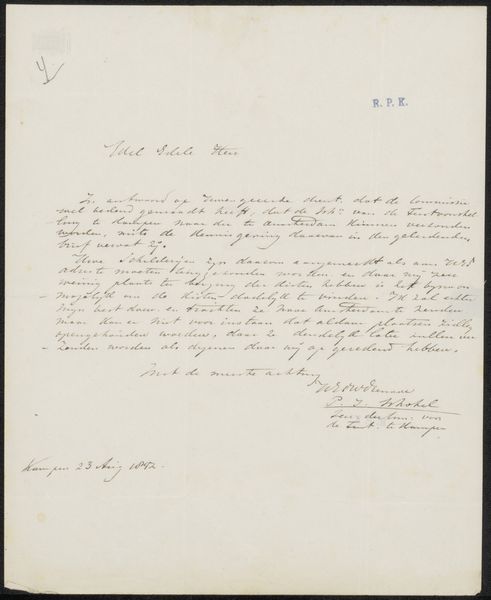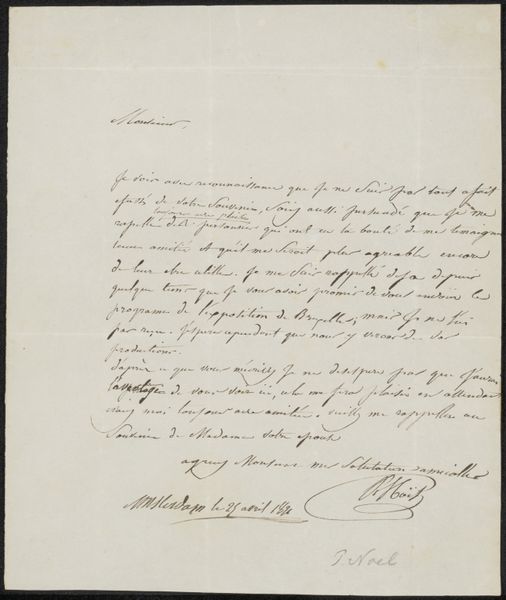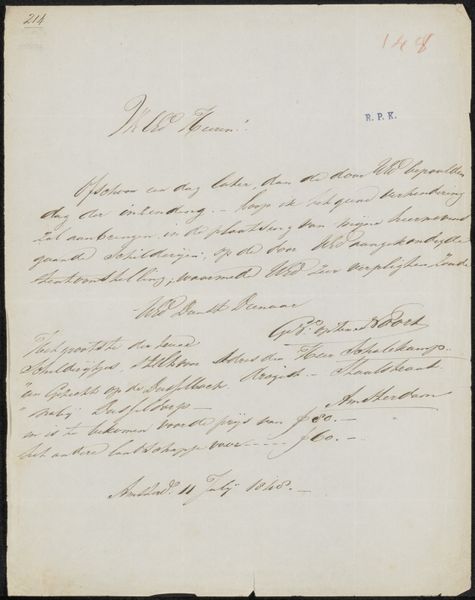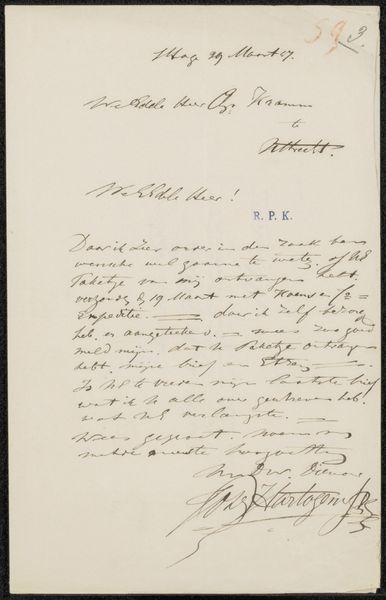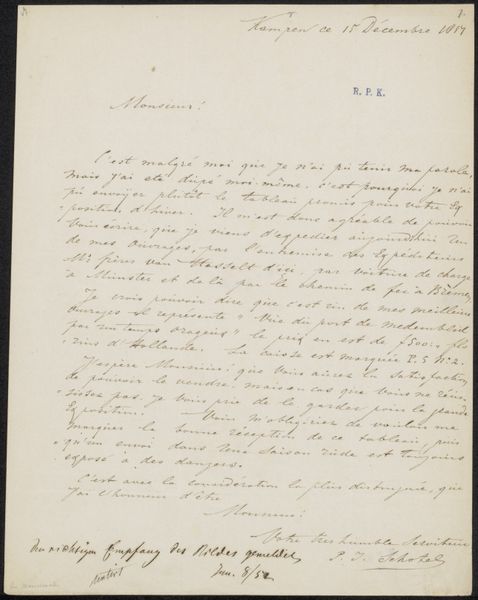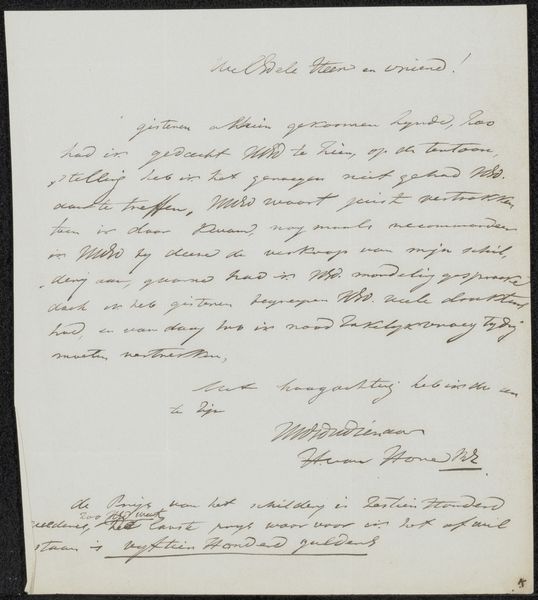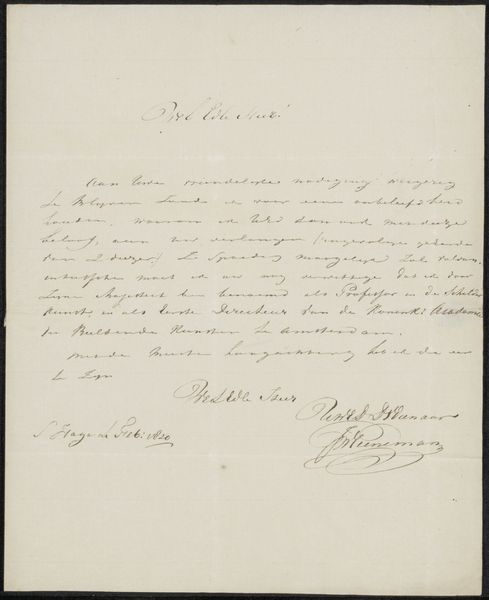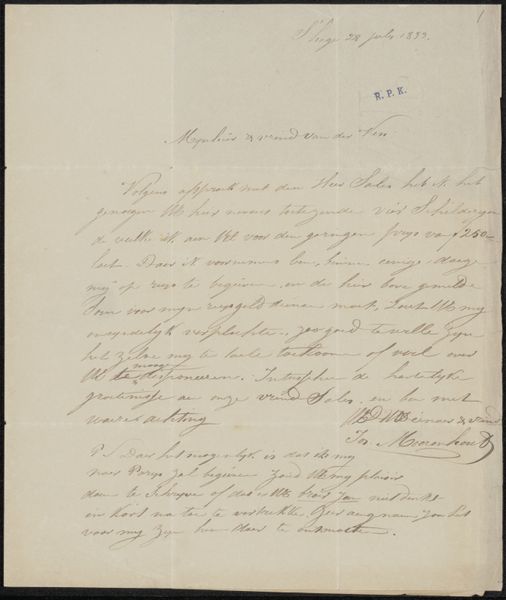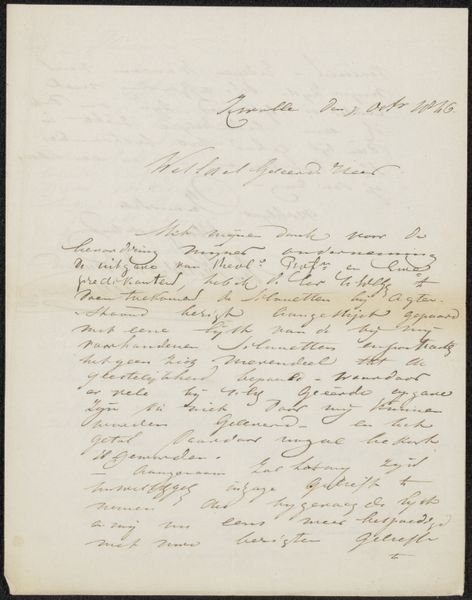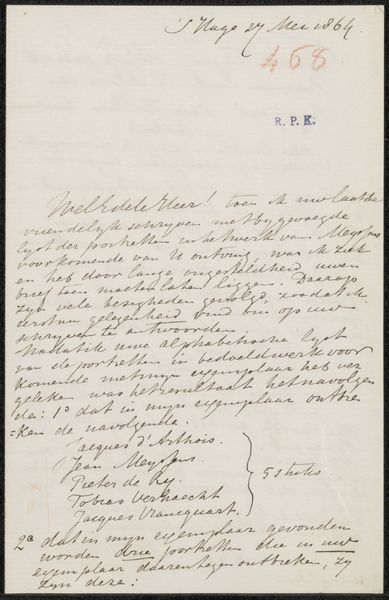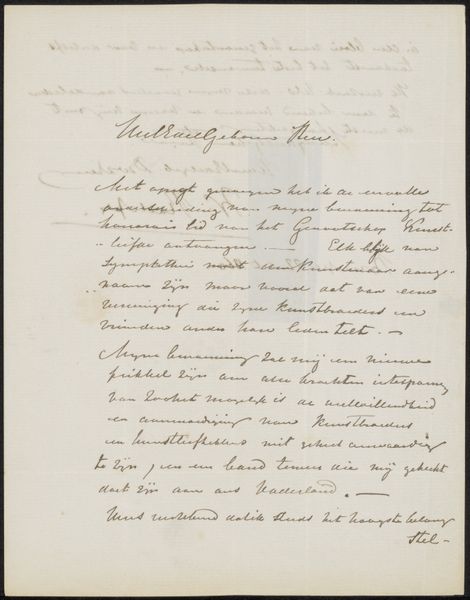
drawing, paper, ink, pen
#
drawing
#
paper
#
ink
#
romanticism
#
pen
Copyright: Rijks Museum: Open Domain
Curator: Here we have a piece entitled "Brief aan A.B. Verpoorten," possibly created in 1848 by Petrus Johannes Schotel. It’s currently held at the Rijksmuseum. My initial feeling is that the handwriting gives it a delicate and human touch, almost a snapshot into a past conversation. Editor: It feels quite unassuming, doesn’t it? The pen and ink on paper signal the immediate and practical nature of letter writing during the period. These materials are humble and widely accessible; paper would be readily available and penmanship essential to communicate with speed across different locations. Curator: Absolutely, the accessibility speaks to a broader segment of society engaging in written communication, something relatively novel during the rise of the merchant classes, creating demand for goods and driving social changes reflected in increased literacy. Editor: Precisely. Ink manufacture itself had significant implications. From the grinding of pigments to recipes with gum Arabic and galls, making your own ink was a practical chemistry rooted in particular ingredients and often trade secrets, imbuing each writer's materials with individuality. We cannot separate the content of communication from its production; they shaped each other. Curator: And think about the postal services! A whole industry created, allowing this single sheet to travel distances and connect individuals in commerce or, in this case potentially personal correspondence. Schotel, predominantly known for marine paintings, provides such a grounded piece reflecting the increasing mercantile lifestyle that helped bolster his landscapes’ market appeal. Editor: I’m thinking of the environmental conditions impacting each component. Paper absorbs, inks fade or shift depending on their composition and the care in its handling. We consider then, what actions has conserved these words for so long. What decisions made regarding preservation shape our experience of these messages from the past. Curator: Exactly. Viewing this letter gives a window into a time in Europe experiencing sweeping changes in society driven through global exchange of resources. This everyday communication offers us intimate detail missing within the canon. Editor: Thinking materially gives insight here – how something written is inherently an expression that goes beyond words on its page. It represents physical labour embedded in specific resources that speaks profoundly of change.
Comments
No comments
Be the first to comment and join the conversation on the ultimate creative platform.
